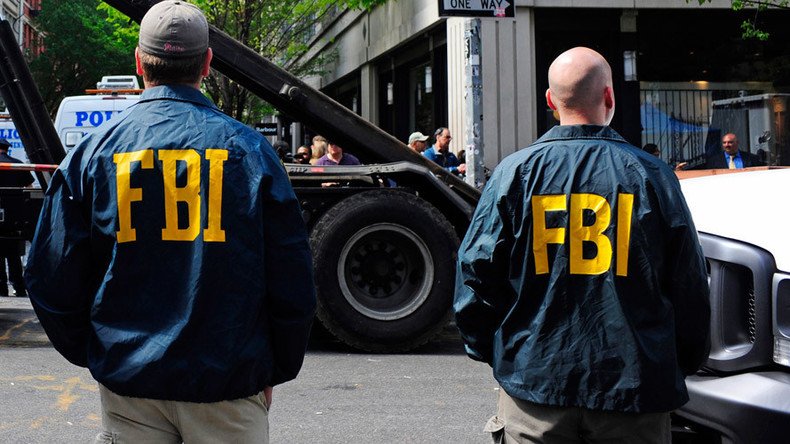Apple v FBI: Your guide to the fight so far

The stage is set for a showdown between the FBI and Apple after the tech company’s CEO Tim Cook confirmed he will not assist the feds in hacking the iPhone of one of the San Bernardino shooters.
The outcome is expected to have far-reaching implications in setting a precedent for future battles between digital privacy advocates and US national security interests.
Here’s what you need to know about the fight so far:
So why has this issue arisen?
The FBI contacted Apple two weeks ago with a request for assistance in hacking the iPhone of one December's San Bernardino mass shooters, Syed Rizwan Farook. Apple refused.
The matter was brought before the US District Court in LA on February 16, where US Magistrate Judge Sheri Pym issued a 40-page statement requiring that Apple give "reasonable technical assistance" to the FBI. The tech company was given five days to formally respond to this order.
Apple CEO Tim Cook issued an open letter the next day, saying the company would not comply with the order. He called it an “unprecedented step which threatens the security of our customers...which has implications far beyond the legal case at hand.”
READ MORE:‘Too dangerous’: Apple blasts court order over San Bernardino shooter’s iPhone
What does the FBI want Apple to do?
Apple has already provided the FBI with data from weekly back-ups made on Farook’s iPhone with its iCloud service, but those backups stopped on October 19, according to a federal search warrant request.
The iPhone in question has certain security settings which will result in all personal data on the device being deleted after 10 failed passcode attempts. The FBI want Apple to alter the settings, allowing an unlimited number of attempts to enter the correct code.
The FBI want to control the access process, but say they do not wish to know how it works and this would be a once off use of such a “backdoor” system.
Or more simply: "if anyone other than the user can get in, it's not secure." Manufacturer access is a vulnerability. https://t.co/Um5N3QiWiz
— Edward Snowden (@Snowden) February 17, 2016
Why is Apple refusing to help?
In September 2014, Apple introduced new encryption for its iPhone operating system that would make it mathematically impossible for the company to unlock the phones. The move was a response to increased digital privacy concerns following revelations made by NSA whistleblower, Edward Snowden.
The company was alleged to be among a number of tech giants who had provided customers’ information to the FBI and the NSA via the PRISM programme, in compliance with court orders since 2012. Apple issued a statement saying they had "never heard" of Prism before June 2013.
Cook said in his statement Wednesday that the software needed to fulfil the FBI’s request does not exist today and “would have the potential to unlock any iPhone in someone’s physical possession”.
“Building a version of iOS that bypasses security in this way would undeniably create a backdoor,” he stated.
Hasn’t Apple complied with the FBI before?
Apple has unlocked phones for authorities at least 70 times since 2008, according to prosecutors arguing in a similar case in New York. Apple doesn’t dispute this figure.
The US government has been ordering Apple to grant it access to an iPhone that prosecutors seized as evidence against an admitted methamphetamines dealer for the past three months. Apple has acknowledged that it can conceivably unlock the phone in this case.
A government attorney also acknowledged during the case that one U.S. law enforcement agency has already developed the technology to crack at least some iPhones, without the assistance from Apple that officials are demanding now, according to Daily Beast.
READ MORE:Apple urges judge to rule on whether US gov’t can force it to unlock iPhone
So where does the law stand?
The All Writs Act of 1789 is being used to justify the FBI’s demand. The law authorizes judges to issue “all writs necessary” to further a case.
Apple and privacy advocates say it can’t be used to effectively make new law in an unsettled area, according to Forbes.
How have other tech giants reacted?
Whatsapp, Google and Microsoft have all expressed their support for Apple’s stance.
Whatsapp CEO Jan Koum took to Facebook to show his solidarity.
http://www.apple.com/customer-letter/ - I have always admired Tim Cook for his stance on privacy and Apple's efforts to...
Posted by Jan Koum on Wednesday, February 17, 2016
Microsoft chief legal officer, Brad Smith, shared the Reform Government Surveillance (RGS) statement on Twitter which said “technology companies should not be required to build in backdoors”
This was retweeted by Microsoft CEO Satya Nadella.
.@ReformGS statement on Apple court case https://t.co/2TqX3NfvuJ. Essential to have broad public discussion on these important issues.
— Brad Smith (@BradSmi) February 18, 2016
The RGS includes companies - AOL, Dropbox, Evernote, Facebook, Google, Apple, LinkedIn, Twitter, and Yahoo.
Google CEO Sundar Pichai took to Twitter to say the request “could be a troubling precedent”.
1/5 Important post by @tim_cook. Forcing companies to enable hacking could compromise users’ privacy
— sundarpichai (@sundarpichai) February 17, 2016
READ MORE: ‘Troubling precedent’: Google CEO rallies for Apple over FBI encryption case
The NSA can probably already hack an iPhone, but that's not the issue. About setting legal precedent. https://t.co/XRZNDornVo
— Jenna McLaughlin (@JennaMC_Laugh) February 18, 2016
.@AlexanderAbdo on FBI's effort to make Apple help it unlock an iPhone: "unprecedented, unwise, and unlawful" https://t.co/FmreDH9rPX
— ACLU National (@ACLU) February 17, 2016
If the FBI can force Apple to hack into iPhones, then so too can every repressive regime in the world. https://t.co/FmreDH9rPX
— ACLU National (@ACLU) February 17, 2016
The American Civil Liberties Union’s principal technologist, Chris Soghoian, has pointed to the massive price discrepancy between a new iPhone and a new smartphone powered by Google’s Android software, arguing there is the creation of a “second-class citizen.”
“The phone used by the rich is encrypted by default and cannot be surveilled, and the phone used by most people in the global south and the poor and disadvantaged in America can be surveilled,” he said at an EmTech conference last year.
Google android software does not have the same level of end to end encryption as Apple making android users an easier target for law enforcement or intelligence agencies, he claimed.
So, what’s next?
Apple have just a few more days to file a formal response to the court. If both sides are still not happy, the case can be passed to the District Court.
Failing resolution at the District Court, the next step would be for the case to go before the Court of Appeals for the Ninth Circuit - the court which handles these types of cases on the US West Coast.
If there is still no resolution, the case could reach the US Supreme Court, which would have the final decision. This scenario could take several years before a resolution is found.
Meanwhile, the House Judiciary Committee plans to hold a hearing on the matter on March 1 and has invited Apple to attend, according to The Guardian.












